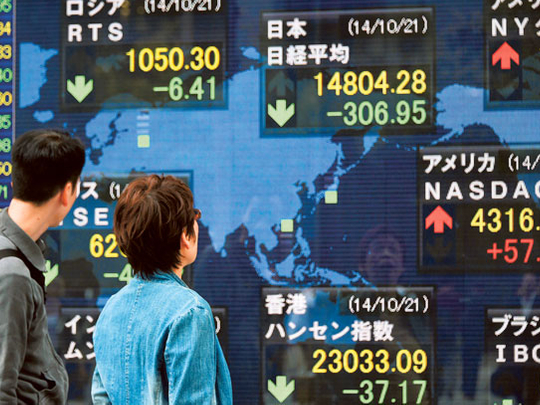
Asian stock markets were mixed and the dollar strengthened as investors eased up after political uncertainty sent them toward haven assets. The Aussie erased losses after the central bank left its key interest rate on hold, while the kiwi rallied on inflation expectations.
The MSCI Asia Pacific Index was poised for its highest closing level since July 2015, even as Japanese stocks retreated. That comes after the S&P 500 Index retreated from near-record levels and 10-year Treasury yields slid to a two-week low. The dollar gained against most major currencies, with the yen was little changed after a three-day rally. The Aussie erased losses after the central bank left its key interest rate on hold, while the kiwi rallied on inflation expectations. Hong Kong equities fluctuated as investors awaited data on China’s foreign-currency reserves.
China stocks pulled back on Tuesday on fresh signs the government was moving to deflate potential credit bubbles in the broader economy, reinforcing recent central bank tightening moves that have crimped investors’ risk appetite.
The blue-chip CSI300 index fell 0.2 percent to 3,365.68 points, while the Shanghai Composite Index dipped 0.1 percent to 3,153.09.
Investors were cautious after state media reported on Tuesday that China’s central bank had sent out so-called “window guidance” to some banks urging them to control their credit quotas starting in February.
Economists forecast China’s banks extended the second highest level of loans on record in January as worries about policy tightening added to lenders’ usual rush to sign up higher-quality customers early in the year.
The People’s Bank of China (PBOC) reaffirmed its tightening bias by skipping open market operations for the third straight session on Tuesday, citing a “relatively high level” of liquidity in the banking system.
The PBOC unexpectedly raised short-term interbank rates on Friday, though analysts do not expect it will be in any rush to raise its benchmark policy lending rate any time soon.
“We believe strengthening financial regulation remains a near-term downside risk to the A-share market,” wrote Gao Ting, head of China strategy at UBS Securities.
Most sectors barely moved in thin activity. Losses were led by energy shares.
Investors stepped back after snapping up haven assets on Monday. A Trump-fueled rally in equities has been faltering as traders assess how the U.S. administration will balance protectionist trade rhetoric with promised tax cuts and spending increases. At the same time, they are assigning greater risk premiums to European countries where anti-establishment movements are gaining traction ahead of elections.












